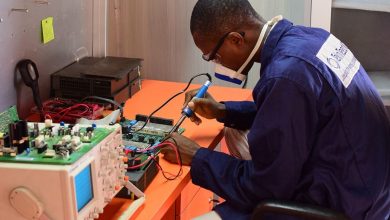Covid-19 Business Loans: £5bn Lost to Fraud


“Nigeria ranked 151 in the 2021 Transparency International’s Corruption Perception Index while the United Kingdom ranked 11. Nigeria is more likely to mismanage subsidies such as government-provided loans”.
The Covid-19 Bounce Back Loan Scheme was passed by UK parliament as part of the government’s commitment to assist an estimated 6 million small businesses in a financially vulnerable position owing to the new coronavirus pandemic in 2021. These loans were designed to provide smaller companies access to low-cost financing, with the UK government guaranteeing 100% of the loan without further fees or interest payments for the first 12 months.
A chunk of the initiative, worth, was unfortunately disbursed to fraudsters who applied to several banks under the government-backed loan scheme; official estimates show that distributing banks lost up to £5 billion in fraudulent loans paid out to unqualified parties.
More than 22,000 loans totaling £5 billion were wrongfully disbursed to unqualified companies — those already dissolved before the pandemic and those incorporated after the pandemic began. As a result, executives from five UK banks – HSBC, Santander, Barclays, NatWest, and Lloyds – in charge of disbursing loansx to businesses were summoned to testify before the parliament’s banking committee about the disbursement methods. So far, bank executives have admitted to uncovering a tiny number of duplicate loans to already dissolved and newly formed companies during the pandemic not covered by the lending scheme’s restrictions.
Also Read: Many SMEs Divert Business Loans to Building Houses
Meanwhile, the lack of checks by the banks to verify loan applications by companies prior to disbursement facilitated the fraud; checks were only implemented after the majority of loans had been issued to businesses.


Source: Guardian UK, Arbiterz ResearchWhy is the Bounce Back Loan Important?
In response to the economic disruption caused by the Covid-19 outbreak, the United Kingdom government implemented a variety of initiatives to assist businesses and offset earnings, cash flow, and workforce losses. One of those initiatives was the Covid-19 Bounce Back Loan Scheme (BBLS). To assist enterprises, the Covid-19 Bounce Back Loan Scheme (BBLS) was established as part of a larger package of government assistance for UK firms and employees, allowing banks to grant a six-year term loan ranging from £2,000 to a maximum of £50,000.
Furthermore, the loan facility allows businesses to manage their cash flow and have a better chance of returning to growth. The loan scheme provides these lenders with flexible terms, such as granting them the opportunity to request an extension of their loan term to 10 years from the initial 6 years at the same fixed interest rate of 2.5% and taking a repayment holiday for up to six months during the term of their bounce-back loan.
Given the problems that small business owners faced during the first Covid-19 lockdown, the government was under pressure to implement the bounce-back financing scheme as soon as feasible. As a result, the loan plan included little checks on borrowers, allowing potential fraudsters to apply to many banks under the government-backed loan scheme, resulting in a £5 billion fraud that the distributing banks have yet to account for.
The Central Bank of Nigeria also implemented Covid-19 stimulus loan schemes for businesses. No independent or official audit has been done to verify their effectiveness or discover the incidence of fraud. Nigeria ranked 151 in the 2021 Transparency International’s Corruption Perception Index while the United Kingdom ranked 11. Nigeria is more likely to mismanage subsidies such as government-provided loans.







